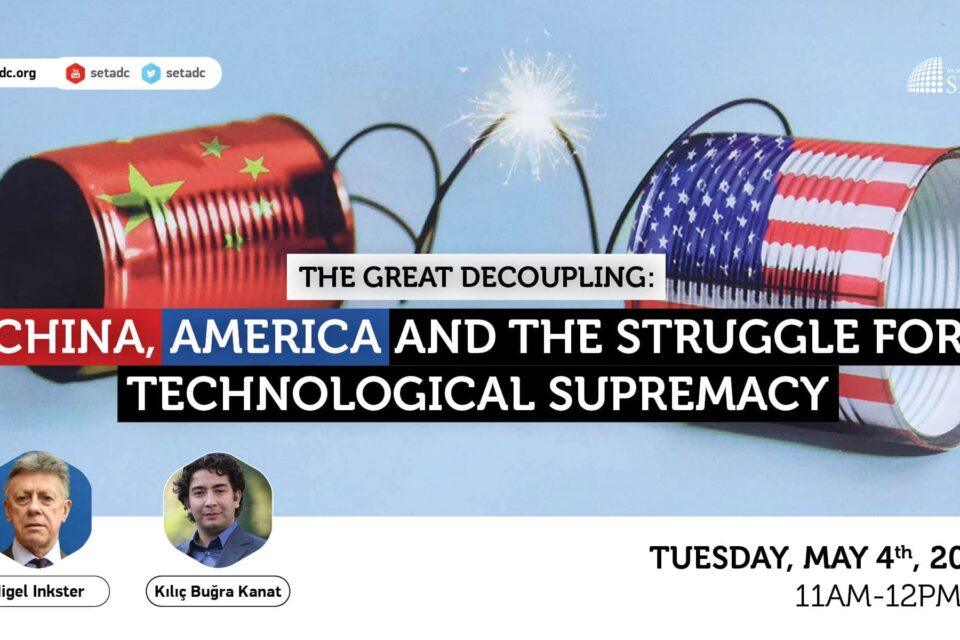Event Summary: The Great Decoupling

On Tuesday, May 4, 2021, the SETA Foundation at Washington, DC hosted a virtual panel to discuss ‘The Great Decoupling: China, America and the Struggle for Technological Supremacy.’ The discussion featured Nigel Inkster, senior adviser for cyber security and China at the International Institute for Strategic Studies.The panel was moderated by Kilic Kanat, Research Director at SETA DC.
At the outset, Inkster stated that the early chapters of his book are devoted to China’s own indigenous, intellectual traditions, which include technology. It serves as a reminder to readers that China was responsible for half of the world’s engineering inventions, including the ones that made possible the Western-led age of exploration in the sixteenth century. He added that during this development, China never succeeded in developing a culture of science. The bottom line is that although in the late eighteenth and early nineteenth centuries China was a consequential global civilization, it remained highly vulnerable to Western nations due to the industrial revolution. As a result, China adopted the view that the world was divided in two, with a Chinese-led order and the West. Nearly overnight, China went from being a major civilization that saw itself as the center of the world to disparaged and decried in Western media as a backward place. Unless people understand this background, it will be difficult to understand why China is acting the way it is.
When the People’s Republic of China (PRC) was established in 1949, the country plunged into a succession of political movements. Top-down government initiatives to promote the emergence of technology became popular, leading to a highly permissive and cutthroat competition between Chinese private sector companies. This development created a remarkable transformation. China became heavily reliant on US technology and was acutely aware of the potential of the internet to act as a vector of subversion of the PRC. As China’s capabilities grew, so too did its discomfort with a reliance on American technology, particularly after the Snowden revelations. China developed the concept of cyber sovereignty, the idea that countries should have an internationally recognized right to police content transiting their sovereign space. At this point, many began to see evidence of strain in the US-China relationship vis a vis technology. Inkster noted that where China has excelled is in the ingenious application and development of technology that they themselves did not create. He said that China’s advantages come from two places: a concentrated state effort to develop a leading position in key technologies and the large volumes of data they are able to generate. But, China remains weak in foundational science in relation to the West. In terms of Biden’s policy, the president is continuing the Trump agenda of being tough on China’s perceived infractions but in the context of a more coherent strategy, knowing that the US cannot do this alone. If the US wants to be successful, it will have to accept the reality that in some areas Chinese technology will dominate.




















